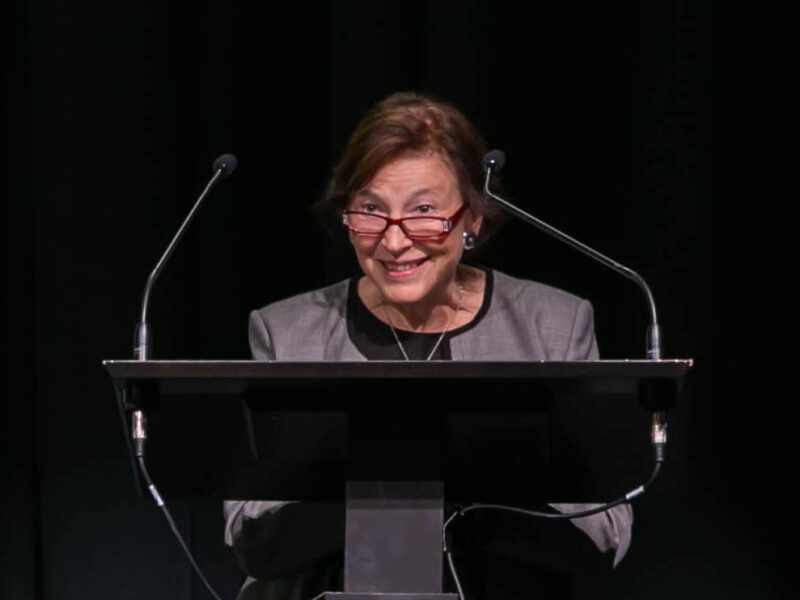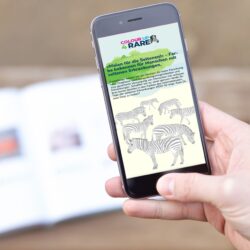„Denn die einen sind im Dunkeln. Und die anderen sind im Licht. Und man siehet die im Lichte. Die im Dunkeln sieht man nicht.“
Mit diesen Worten aus der Dreigroschenoper des gebürtigen Augsburgers Berthold Brecht eröffnete Eva Luise Köhler ihr Grußwort zum Augsburger Tag der Seltenen, zu dem das Zentrum für Seltene Erkrankungen des dortigen Universitätsklinikums am 24. September eingeladen hatte. Denn nicht gesehen zu werden, im Dunkeln zu stehen – das seien Erfahrungen, die Menschen mit Seltenen Erkrankungen noch viel zu häufig machen müssten, erklärte die Stiftungsratsvorsitzende der Eva Luise und Horst Köhler Stiftung und betonte: Selten sind durchaus viele. Im Schnitt erkrankt einer von 17 Menschen im Laufe des Lebens an einer der rund 8.000 bekannten Seltenen Erkrankungen. Weltweit sind 300 Millionen Menschen betroffen, in der Europäischen Union rund 30 Millionen, allein in Deutschland über vier Millionen. Und nicht zuletzt aufgrund immer neuer diagnostischer Möglichkeiten und Erkenntnisse sind die Zahlen in der Tendenz stark steigend.

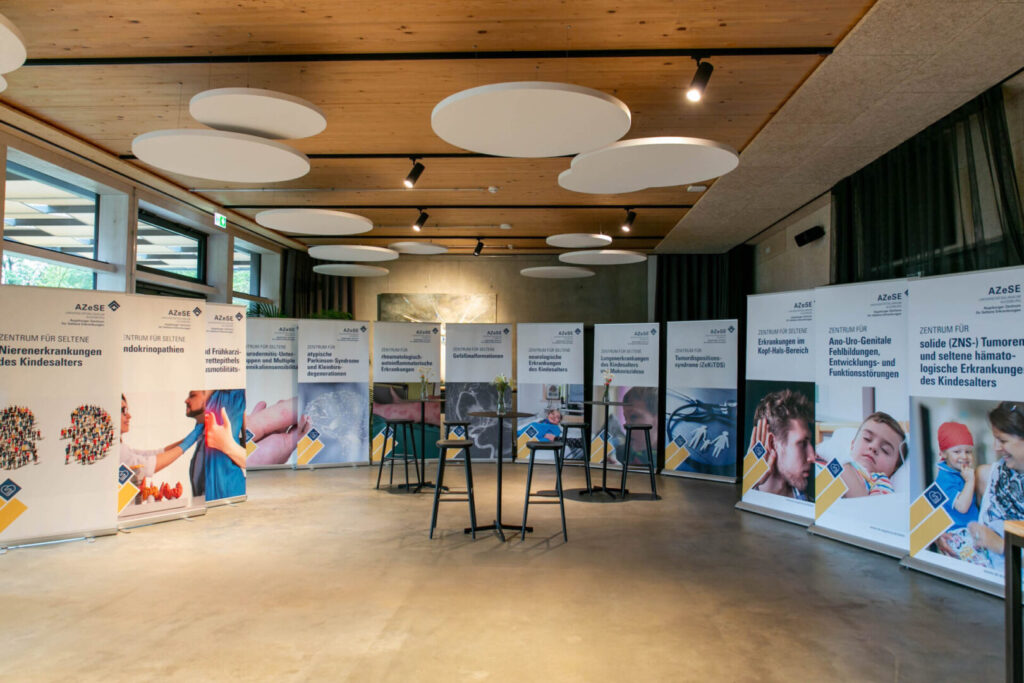
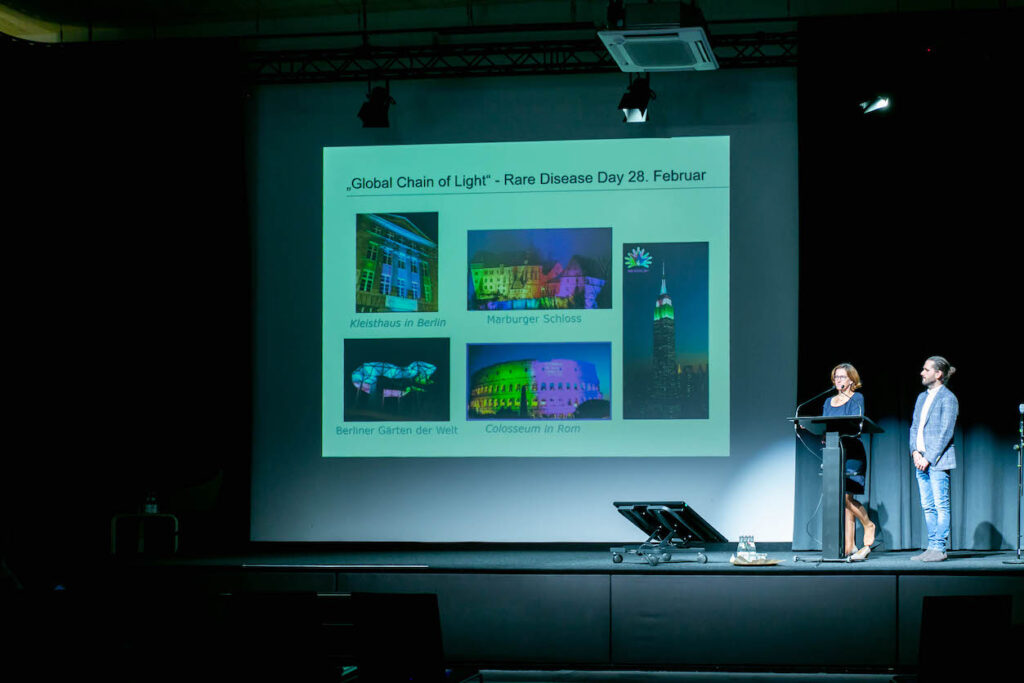
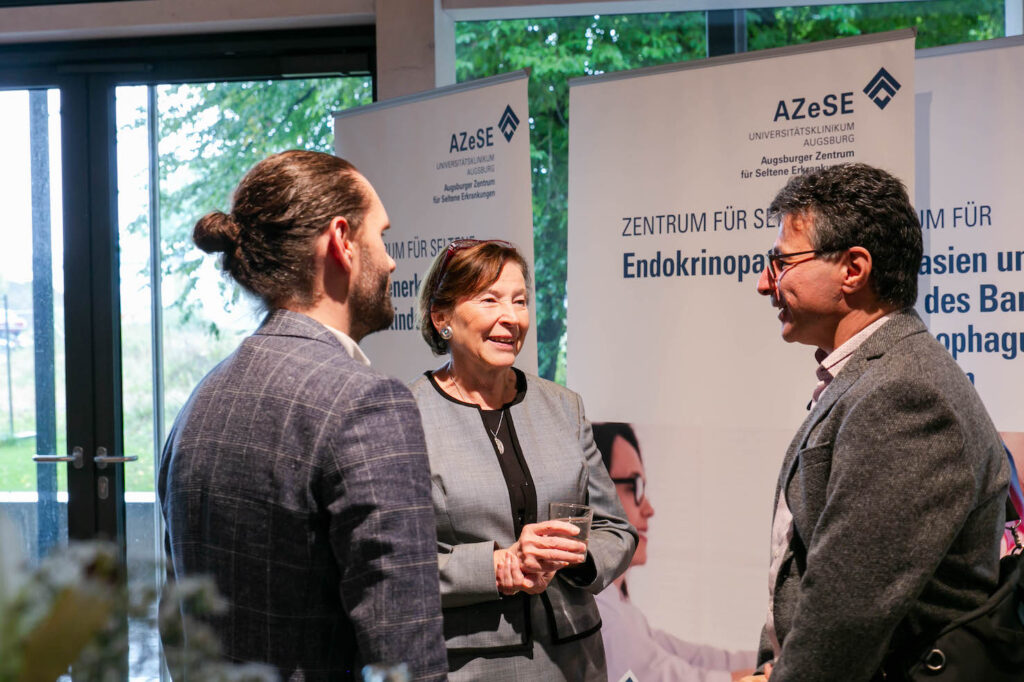
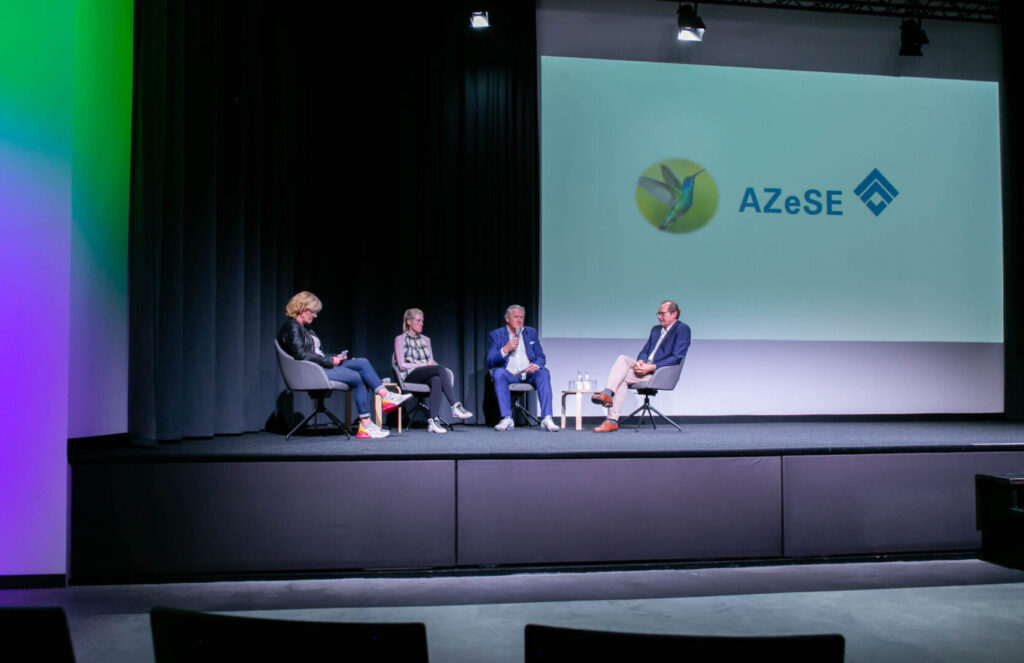
Für Eva Luise Köhler steht fest: Ein Jeder und eine Jede von diesen vielen Menschen hat das gleiche Recht auf Gesundheit und eine bestmögliche medizinische Versorgung. Leider sei das jedoch selbst in einem der besten Gesundheitssysteme der Welt noch immer keine Selbstverständlichkeit. Aber es gebe auch Licht im Dunkel: Denn mit den mehr als 35 Zentren für Seltene Erkrankungen in Deutschland seien in den letzten Jahren regelrechte Leuchttürme in der Versorgung geschaffen worden. Eva Luise Köhler dankte der Leiterin des Augsburger Zentrums, Dr. Desirée Dunstheimer, und ihrem Team für ihr Engagement und ihre wertvolle Arbeit: „Sie leben jeden Tag das Miteinander und das über-den-eigenen-Tellerrand-Gucken, das in der Medizin generell wichtig, bei den Seltenen aber unabdingbar ist. Von Herzen Dank dafür.“
Nun sei es wichtig, die im Projekt TRANSLATE-NAMSE erfolgreich erprobten Versorgungswege in die Regelversorgung zu überführen und nachhaltig zu finanzieren. Zudem bräuchten die „Waisen der Medizin“ eine mutige Forschungsoffensive, die insbesondere auch die Digitalisierung umfasst, denn: „Von der Digitalisierung in der Medizin, die für uns alle ein neues Zeitalter einläuten wird, wird niemand mehr profitieren als Menschen mit Seltenen Erkrankungen.“ Abschließend appellierte Eva Luise Köhler an die rund 100 Gäste im Saal, weiter gemeinsam für die Belange „der Seltenen“ zu kämpfen und so dafür Sorge zu tragen, dass der immense medizinische Fortschritt tatsächlich alle erreicht.
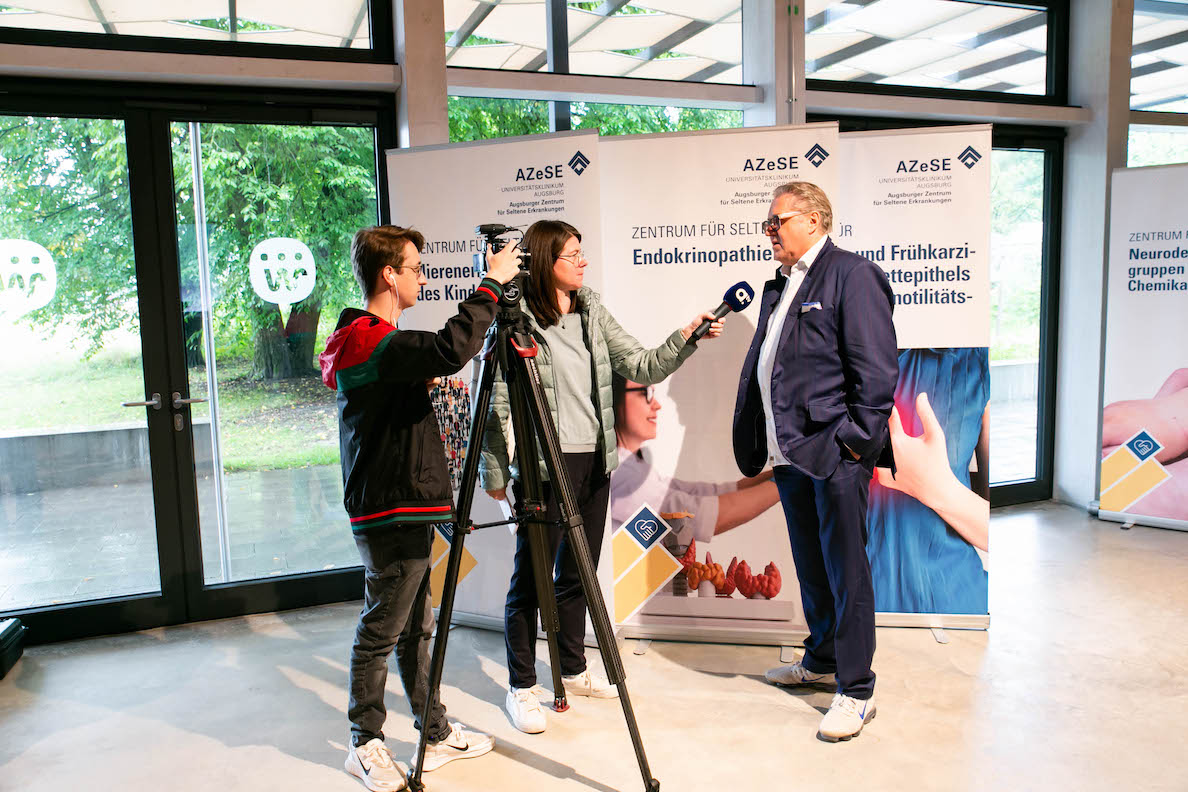

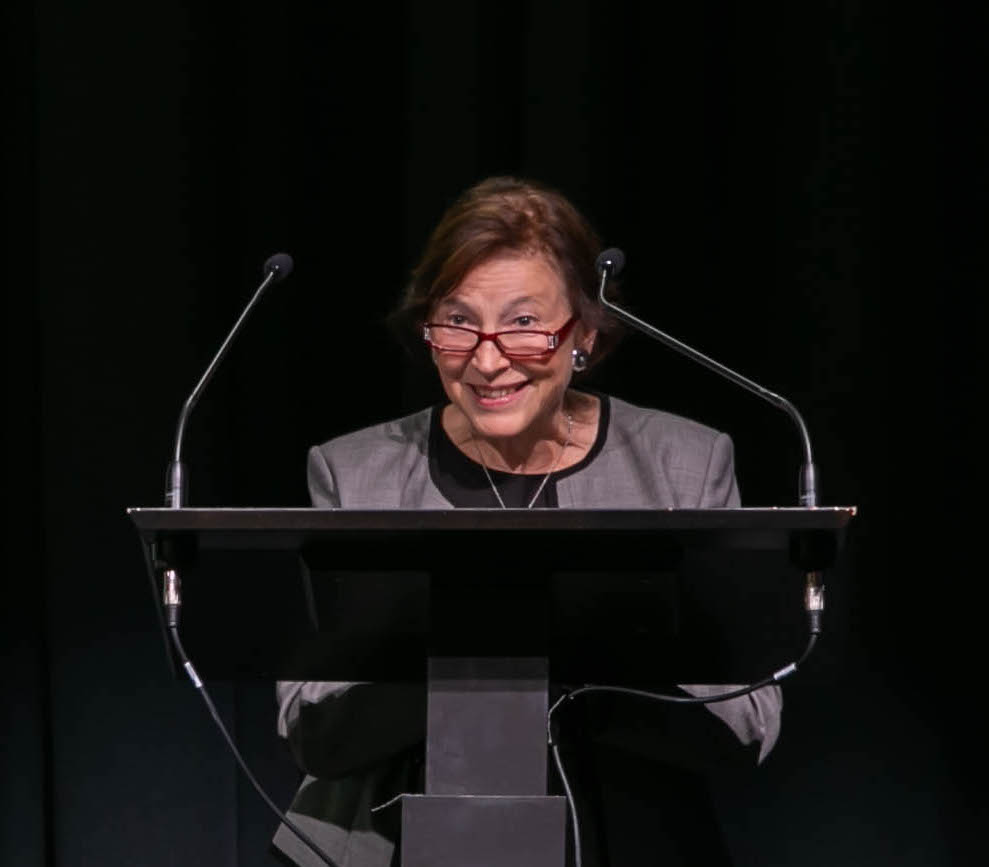
Auf konkrete Aspekte dieses medizinischen Fortschritts ging anschließend Prof. Dr. Annette Grüters-Kieslich, Vorsitzende der Eva Luise und Horst Köhler Stiftung für Menschen mit Seltenen Erkrankungen, in ihrem Vortrag „Seltene Erkrankungen und ihre Bedeutung für häufige Erkrankungen“ ein. An Beispielen aus ihrer eigenen Forschungstätigkeit in der Kinderendokrinologie zeigte sie, dass Seltene Erkrankungen keineswegs Orchideen- oder Kolibri-Erkrankungen sind, sondern wegweisend für das Verstehen von Krankheitsmechanismen häufiger Erkrankungen wie Osteoporose und Adipositas. Für Prof. Dr. Grüters-Kieslich sind „die Seltenen“ ein Präzedenzfall der individualisierten, personalisierten Medizin, da sich Erkrankungen aufgrund der genetischen und molekularen Grundlagen zunehmend in viele Unterformen Seltener Erkrankungen einteilen lassen. Sie verwies darauf, dass fast jeden Tag die genetische Ursache einer Seltenen Erkrankung identifiziert wird. Die renommierte Kinderärztin ist überzeugt, dass die fast 100 Jahre alte Erkenntnis von Archibald Garrod, dem „Father of Genetics“, auch im Zeitalter der neuen Technologien Bestand haben wird:
‘‘The study of nature’s experiments is of special value and many lessons which rare maladies can teach could hardly be learned in other ways.’’
Auch der Lokalsender a.tv war vor Ort. Der Bericht ist hier abrufbar.
